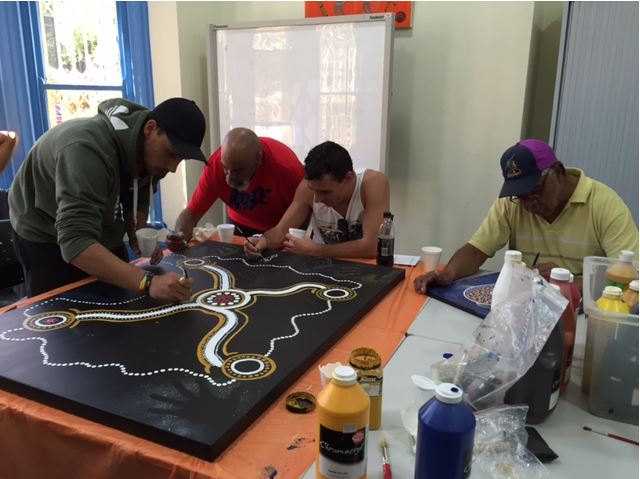Our history, Our story, Our future
30 May 2016
National Reconciliation Week celebrates and promotes respectful relationships between Aboriginal and Torres Strait Islander people and other Australians.
At the heart of Reconciliation Week is an acknowledgement of the history and injustices Aboriginal Australians have endured and a celebration of Aboriginal culture as part of Australia’s national identity.
This particular week (27 May – 3 June) recognises two significant dates for the indigenous people of Australia: the 1967 referendum and 1992 Mabo land rights decision. In the 1967 referendum, Australia voted to have clauses removed from the Australian Constitution discriminating against Indigenous people. The 1992 Mabo Case recognised the Aboriginal and Torres Strait Islander peoples as the original inhabitants of Australia, overturning terra nullius.
Aboriginal and Torres Strait Islander people
In Salvation Army services, Aboriginal and Torres Strait Islander people are over overrepresented compared to the 3% of the Australian population they represent:
- 13% of people accessing our homelessness services are Aboriginal or Torres Strait Islander
- We surveyed clients in our 283 emergency relief centres (National Economic and Social Impact Survey 2016) and found 16% of respondents identified as Aboriginal and Torres Strait Islander and continue to experience significantly higher rates of
socio-economic disadvantage compared to non-indigenous Australians.
In
This will publicly declare its commitment to reconciliation between Aboriginal and Torres Strait Islanders and non-Aboriginal Australians. The plan focuses on:
- Making sure all staff receive cultural awareness training
- Ensuring our services and churches are culturally safe and welcoming places
- Standardising processes for acknowledging Traditional Custodians and;
- Displaying visual symbols of respect such as flags, Aboriginal and Torres Strait Islander artwork and plaques acknowledging country.
Many Salvation Army programs such as the St Kilda Crisis Service reach out to Aboriginal and Torres Strait Islander people in local areas.

Arts and Yarning program with Art Teacher Les Stanley (right) at St Kilda Crisis Services
At St Kilda Crisis Service a First Peoples worker provides support, advocacy and information to people accessing the service, and a specialised Aboriginal Health Care Coordinator offers care for people with chronic diseases. An arts program is offered to people participating in local drug and alcohol rehabilitation programs. As well as this weekly street outreach is coordinated by a GP, nurse and the First Peoples Worker to Aboriginal and Torres Strait Islander people sleeping rough in the St Kilda area.
A series of community events are held across Australia to celebrate Reconciliation Week. You can find an event near you on the
To find out more about The Salvation Army Victoria’s Reconciliation Action Plan please click here.